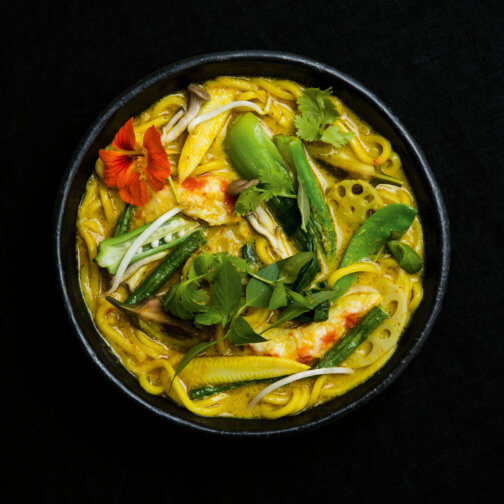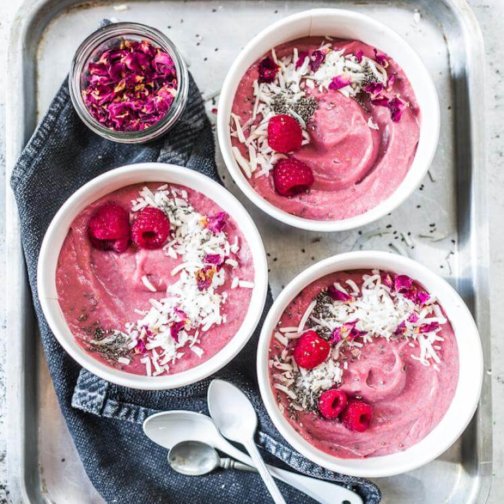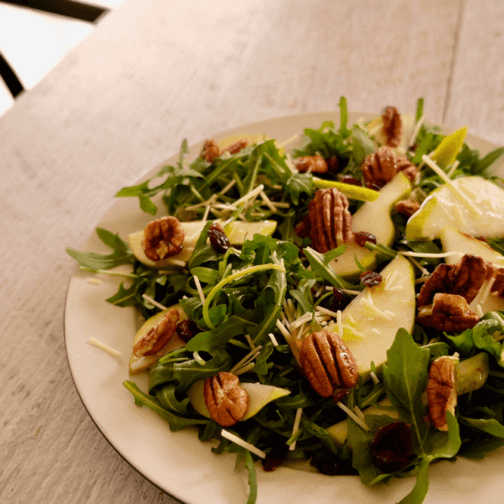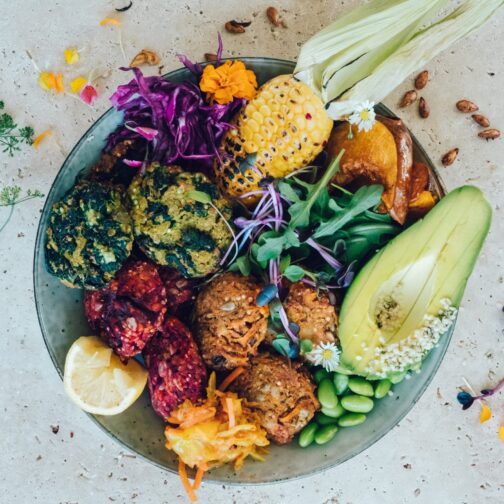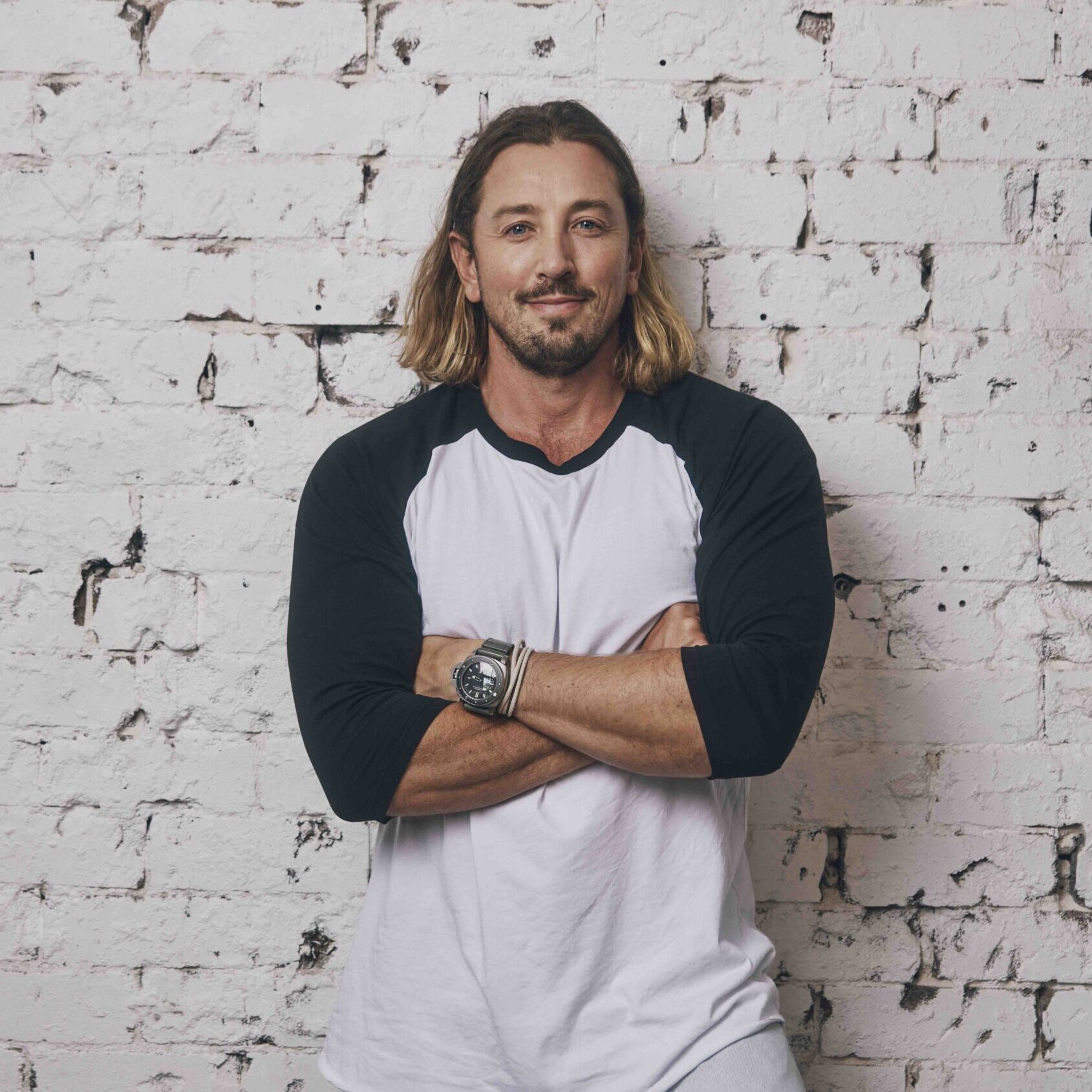
In a Nourish exclusive, the acclaimed Aussie nutritionist, podcaster, author and two-time Change Maker of the Year Simon Hill tells us about his evolving mission as a plant-powered advocate.
Simon Hill launched his public platform to share plant-based nutrition information and inspiration back in 2018. Since those early days, he has gained a master’s in nutrition, released a bestselling book of foundational nutrition knowledge, The Proof is in the Plants, recorded over 200 podcast episodes, opened a vegan restaurant, and shared his expertise through a range of other collaborations and projects – including as a regular contributor to Nourish magazine.
There’s no question this plant-based powerhouse is making a real difference in the world, and voters in the Nourish Vegan Awards have noticed: Simon has just won the prestigious Vegan Change Maker of the Year trophy for the second year in a row, from an entirely free choice of candidates in this open category.
In honour of his win, we caught up with Simon to dig in to what drives him on his mission, what he wants everyone to know about nutrition science, his top recommended health resources, and his own go-to wellbeing habits.
Nourish: Simon, first of all, congratulations! Can you share what you think underlies your success as a change maker?
SH: From my perspective, my focus is on objectively looking at the science and helping to convey the facts, without hyperbole, to a general audience that is looking to make healthier food choices while considering all life on the planet, and the planet itself. I also try to focus on the big rocks – what are the big dietary levers we can pull that really matter to the things that are important to us. Getting these right most of the time is more important than sweating the small stuff.
Nourish: Why do you think nutrition is such a hotly debated topic?
SH: It’s one of the only areas of science where many people outside the field think they’re an expert. I think that comes down to the fact that we all eat. And we misconstrue our personal experience with true field expertise. Personal experience is important, but anecdotes aren’t a good means of determining what foods, or dietary patterns, lead to better human health. We have much better, more reliable study designs to help us tease that apart. Our nutrition is also very personal. It can be a representation of our culture, family or friendship group, and is often tied into our identity. Which means, if someone says something about food or diet that challenges the way we eat, it challenges us personally. That can be uncomfortable.
Nourish: You rebranded your website and podcast from Plant Proof to The Proof this year. Can you share the main reasons you decided to expand your focus to encompass not just nutrition but other lifestyle factors that impact our wellbeing?
SH: The switch of names was simply to allow me to have conversations beyond nutrition. My views on nutrition are the same – eating a plant-predominant or exclusive diet is a great way to lower our risk of the common chronic diseases that we are most at risk of developing, and is better for the planet and animals.
I encourage people to consider adopting a diet that’s as plant-exclusive as possible based on their circumstances. One of the downsides of nutrition being so hotly debated is that it can sometimes distract us from those big rocks I mentioned earlier. I’m of the view that we shouldn’t be pedantically focussing on diet to the point that it stops us thinking about our overall lifestyle. I’ve always been very interested in exercise since my physiotherapy days so I’ve been enjoying delving into the ins and outs of exercising for longevity on the show, and going forward, listeners can expect to see other topics like psychology, addiction, cosmetics, menopause, and sleep.

Nourish: You are committed to following nutrition science objectively, and plant-based eating remains a focus for you. Why is that?
SH: Put simply, it feels like the right thing to do. I value the planet and want to be the kindest person I can be. There’s no argument a vegan diet has the lowest environmental footprint, and it certainly results in less suffering. Given it can be done in a way that’s extremely health promoting, I’m really left with no choice – I can either act against my values and beliefs or act in accordance with them. I choose the latter because it feels better. There are a few things to focus on – like B12, calcium, omega 3’s, and iodine, for example – but that doesn’t seem like such a big issue in the grand scheme of things, and really any diet will require a degree of planning if someone wants the best results possible.
Nourish: What are three things you wish meat-eaters knew?
SH: I’d start by addressing the protein myth. All plants contain all 9 essential amino acids. They’re not missing any, they’re just in different ratios, which only matters if you are eating a diet with almost zero diversity. Eat with diversity, and eat enough total protein, and it’s a non-issue.
Secondly, I’d emphasise the importance of eating for your microbes. This will immediately improve your diet quality. Our gut bugs love fibre, resistant starch, and polyphenols – three compounds that can together be described as prebiotics. You’ll find these in legumes, wholegrains, fruits, vegetables, nuts, seeds, herbs, spices, and certain cooking oils like olive oil. Eating more of these, in place of animal and ultra-processed foods, will drastically improve your health.
And thirdly, I’d stress that dietary improvements don’t have to be all or nothing. You can improve your health and lower the environmental footprint of your diet by eating more plant protein and less animal protein. The EAT-Lancet dietary pattern is a great starting point.
Nourish: On the flipside, what are your top three messages for vegans?
SH: One: it’s best to represent science accurately. Two: supplement with B12 (and perhaps D3, iodine and omega 3’s). And three: don’t underestimate the power of leading by example. Especially when it comes to influencing friends and family.
Nourish: What health resources would you consider must-haves?
SH: I’ll give my book The Proof is in the Plants and podcast The Proof with Simon Hill a cheeky plug. Nourish by Brenda Davis is a great book for families with children, and Fibre Fuelled by Dr Will Bulsiewicz is essential reading on how to optimise your gut microbiome. I also highly recommend Dr Gemma Newman’s book The Plant Power Doctor and her podcast The Wellness Edit, and The Rich Roll Podcast.
Nourish: What emerging trends and knowledge will you be watching closely in the coming year?
SH: Advancements in animal-free protein through technologies like precision fermentation. I think the idea of creating products like egg whites and milk/yoghurt from precision fermentation is emerging as a major solution to problems within our existing food system. At the same time, I don’t want these products to distract people from what we understand to be a healthy dietary pattern focused on fruits, vegetables, wholegrains, legumes, nuts, and seeds.
Nourish: Can you let us in on any of your upcoming projects, podcast guests, or other new resources you’re working on?
SH: There’s good evidence that traditional fermented foods can actually improve our microbiome diversity and lower inflammation. But people often find it hard to find fermented foods that are animal-free and/or affordable. So I created a digital fermented food recipe book with my team which will be out shortly, providing recipes for making your own plant-based yoghurt with live cultures, kefir, kombucha, and more.
Nourish: You are incredibly hard-working and prolific, and constantly engaging in online scientific debate. How do you sustain your momentum and wellbeing with everything you’ve got going on, and avoid becoming depleted?
SH: Solitude! Finding even a few minutes (but usually 15–20 minutes) to quiet the mind and just pause. It’s easy today to get in the habit of jumping from one conversation to another, or between one app and the next, and become mentally exhausted. I’ve found a few things that keep me feeling in control, in a good mood, and energised: breath, stillness, music, and exercise. There’s likely a different formula for everyone – the main point being to find something that can take you out of the rat race, bring you back to your body and mind, and help you see this amazing human experience for what it is.
***
Thanks Simon! As always, we’ll be following along as your inspiring advocacy journey continues to unfold.
Read more from Simon
Interview by Catherine Laurence



